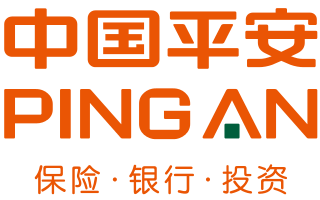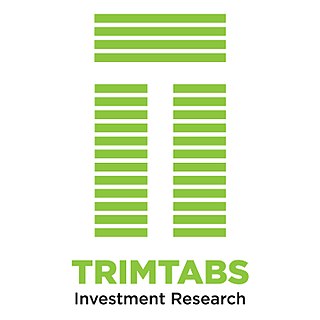A hedge fund is a pooled investment fund that holds liquid assets and that makes use of complex trading and risk management techniques to improve investment performance and insulate returns from market risk. Among these portfolio techniques are short selling and the use of leverage and derivative instruments. In the United States, financial regulations require that hedge funds be marketed only to institutional investors and high-net-worth individuals.
Investment is traditionally defined as the "commitment of resources to achieve later benefits". If an investment involves money, then it can be defined as a "commitment of money to receive more money later". From a broader viewpoint, an investment can be defined as "to tailor the pattern of expenditure and receipt of resources to optimise the desirable patterns of these flows". When expenditures and receipts are defined in terms of money, then the net monetary receipt in a time period is termed cash flow, while money received in a series of several time periods is termed a cash flow stream.
In finance, technical analysis is an analysis methodology for analysing and forecasting the direction of prices through the study of past market data, primarily price and volume. As a type of active management, it stands in contradiction to much of modern portfolio theory. The efficacy of technical analysis is disputed by the efficient-market hypothesis, which states that stock market prices are essentially unpredictable, and research on whether technical analysis offers any benefit has produced mixed results. It is distinguished from fundamental analysis, which considers a company's financial statements, health, and the overall state of the market and economy.
A closed-end fund is an investment vehicle fund that raises capital by issuing a fixed number of shares at its inception, and then invests that capital in financial assets such as stocks and bonds. After inception it is closed to new capital, although fund managers sometimes employ leverage. Investors can buy and sell the existing shares in secondary markets.
An exchange-traded fund (ETF) is a type of investment fund that is also an exchange-traded product, i.e., it is traded on stock exchanges. ETFs own financial assets such as stocks, bonds, currencies, debts, futures contracts, and/or commodities such as gold bars. The list of assets that each ETF owns, as well as their weightings, is posted on the website of the issuer daily, or quarterly in the case of active non-transparent ETFs. Many ETFs provide some level of diversification compared to owning an individual stock.
Contrarian investing is an investment strategy that is characterized by purchasing and selling in contrast to the prevailing sentiment of the time.

Ping An Insurance known also as Ping An of China, full name Ping An Insurance (Group) Company of China, Ltd. is a Chinese holding conglomerate whose subsidiaries provide insurance, banking, asset management, financial, healthcare services. The company was founded in 1988 and is headquartered in Shenzhen. "Ping An" literally means "safe and well".
Investment management is the professional asset management of various securities, including shareholdings, bonds, and other assets, such as real estate, to meet specified investment goals for the benefit of investors. Investors may be institutions, such as insurance companies, pension funds, corporations, charities, educational establishments, or private investors, either directly via investment contracts/mandates or via collective investment schemes like mutual funds, exchange-traded funds, or REITs.
In finance, securities lending or stock lending refers to the lending of securities by one party to another.

Market sentiment, also known as investor attention, is the general prevailing attitude of investors as to anticipated price development in a market. This attitude is the accumulation of a variety of fundamental and technical factors, including price history, economic reports, seasonal factors, and national and world events. If investors expect upward price movement in the stock market, the sentiment is said to be bullish. On the contrary, if the market sentiment is bearish, most investors expect downward price movement. Market participants who maintain a static sentiment, regardless of market conditions, are described as permabulls and permabears respectively. Market sentiment is usually considered as a contrarian indicator: what most people expect is a good thing to bet against. Market sentiment is used because it is believed to be a good predictor of market moves, especially when it is more extreme. Very bearish sentiment is usually followed by the market going up more than normal, and vice versa. A bull market refers to a sustained period of either realized or expected price rises, whereas a bear market is used to describe when an index or stock has fallen 20% or more from a recent high for a sustained length of time.

Google Finance is a website focusing on business news and financial information hosted by Google.
Joel Greenblatt is an American academic, hedge fund manager, investor, and writer. He is a value investor, alumnus of the Wharton School of the University of Pennsylvania, and adjunct professor at the Columbia University Graduate School of Business. He runs Gotham Asset Management with his partner, Robert Goldstein. He is the former chairman of the board of Alliant Techsystems (1994–1995) and founder of the New York Securities Auction Corporation. He was a director at Pzena Investment Management, a firm specializing in value investing and asset management for high net worth clients.
The following outline is provided as an overview of and topical guide to finance:
In finance, a stock market index future is a cash-settled futures contract on the value of a particular stock market index. The turnover for the global market in exchange-traded equity index futures is notionally valued, for 2008, by the Bank for International Settlements at US$130 trillion.

TrimTabs Investment Research, Inc. is a leading independent institutional research firm focused on equity market liquidity based in Sausalito, California.

Do-it-yourself (DIY) investing, self-directed investing or self-managed investing is an investment approach where the investor chooses to build and manage their own investment portfolio instead of hiring an agent, such as a stockbroker, investment adviser, private banker, or financial planner.
The Acertus Market Sentiment Indicator (AMSI) is a stock market sentiment indicator that generates monthly sentiment indications ranging from 0 to 100. The indicator views sentiment as a continuum with anxiety and complacency representing less extreme and nuanced forms of fear and greed, respectively. Generally, a lower reading reflects a market sentiment of fear, while readings of 20-40 represent anxiety. Conversely, a higher reading (>80) suggests significant greed, while readings of 60-80 represent complacency.

Mark J. Hulbert is an American finance analyst, journalist, and author with a focus on expectations of stock market investment newsletters, contrarian investing, and quantitive or technical analysis.
Radhakishan Shivkishan Damani is an Indian billionaire investor, business magnate and the founder of Avenue Supermarts Limited. He also manages his portfolio through his Investment firm, Bright Star Investments Limited. According to Forbes, as of October 2023, he is ranked as the 8th richest person in India and 98th richest person in the world.
Jason Goepfert is an American researcher and columnist focused on the development of behavioral finance. Prior to founding Sundial Capital Research, he was the manager of back office operations for Deephaven Capital Management, a Minnesota-based hedge fund, and Wells Fargo's online brokerage unit.





